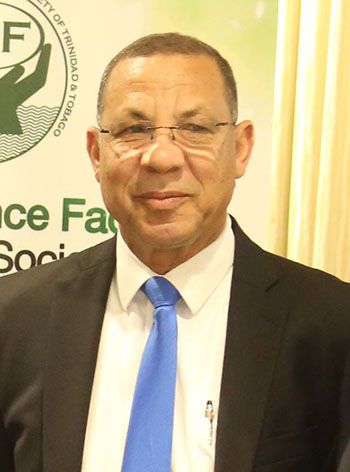(Trinidad Guardian) National Security Minister Stuart Young announced on Thursday that a Cabinet decision was made to remove the existing $100 bill from circulation and replace it with a new, harder to counterfeit note.
He said the measure was taken to fight money laundering, the financing of drugs and illegal firearms, tax evasion, the black money economy, counterfeiting and other illegal activities.
As the 14 day countdown for the implementation of the new polymer $100 bill ticks down, Guardian Media contacted economists Mariano Browne, Dr Roger Hosein, Dr Vaalmikki Arjoon and Mary King to weigh in on the issue.
Mariano Browne:
“It may be helpful or it may not for the economy and small businesses when it comes on stream. They could become short-term exchange points and “sales” could increase in the next 14 days, for example in the rush to monetise cash balances illicit money could simply try to buy its way out.
“It could also have the effect of reducing confidence in existing $100 bills and have the reverse impact. Recalibrating the banks’ ATM machines to be able to dispense the new polymer notes should not take too much time, but this was the busiest retail season of the year and mistakes can happen.”
He said, however, he was informed that ATMs will not be ready to dispense the polymer bills until mid-2020.
Browne said counting machines cannot check the polymer bills, the cost of the new machines was US $2,000 each.
He said reconfiguring the ATMs should happen in the first week, but removing “old “ notes from the system was a time-consuming task.
Replying to whether the changeover was an effective method to clean out “dirty” money, Browne said as long as there were dirty activities, there will be dirty money and this was a temporary, one-off exercise.
He said all it dealt with was the money that was currently “hoarded” and unbanked and the conversion process; it solved nothing.
Browne said there was nothing that said that a person cannot deposit more than $10,000 in an account, it simply said that the person must declare the source of funds.
He said the bank could still report the transaction as suspicious, so the efficacy of this exercise boiled down to the strength of the follow-up investigations.
Browne said it was noteworthy that for all the increase in reporting, no one had been successfully prosecuted for money laundering.
When asked can this move fuel a new black market, he said perhaps the real question was can anything prevent the development of a black market.
Browne said scarcity, bad regulations or loose or poor enforcement help create “black markets” and these conditions exist in T&T in several sectors.
Dr Roger Hosein said the new bill should have come out since the end of September.
He said in December, “the marginal propensity to consume” was the highest for the 12 months of the year and so there will be a heavy demand for cash.
Hosein said if people were being asked “to redeem what proportion of their transactionary, precautionary and speculative balances that they had on their hands in the form of the “old” $100 bills to the new $100 polymer format, then this is likely to introduce into the system an unnecessary degree of panic and chaos which could have been more smoothly managed.”
He said the implications for the economy was that there would probably be a rise in the inflation rate in the month of December as a surge of spending will take place and those with excess cash from the underground economy will try to formalise its form by purchasing cars, property, jewelry and other such assets in order to bring it above board.
Hosein said if this was done in the last two weeks of September, the police would have likely had a better chance of being able to disentangle “normal” economic activity from “fronting” economic activities.
He said the small businesses would probably be a victim of the old currency.
Hosein said people might go by the doubles vendor and the taxi drivers with the $100 bill and they would now, in turn, have the responsibility of going to the bank to change these currencies into the new polymer bill.
He said the informal sector businessperson who did not have a formal business account, may find it a little more difficult to exchange and explain the presence of a heavy amount of the old notes.
Hosein said the legal part of the informal sector such as the nuts man, punch man or doubles vendor were an important part of the economic fabric in economies where the EODB (Ease of Doing Business) was badly ranked, as T&T ranked at 105 compared to Jamaica at 75.






